The title of this article is of course somewhat of an oxymoron, because at this precise moment you, most likely a Freemason, is reading this. But don’t stop reading this article, or in general, because the liberal art of Grammar – reading, writing, and the comprehension and communication of content – can make you smarter, happier, and healthier!
Some years ago, I was chatting to another Freemason and I lamented the fact that I was working for a well-known Masonic publisher and overall general sales weren’t what we hoped for.
He just shrugged and said, ‘Freemasons don’t read.’
I pointed out that this was a bit of an over-generalisation but much as I hate to admit it, he may well be right…in some ways.
Arguably it is not just Freemasons who don’t read; literacy and the art of immersed reading is diminishing in general.
According to the National Literacy Trust: [Statistics for 2012, https://literacytrust.org.uk/parents-and-families/adult-literacy/]
16.4% of adults in England, or 7.1 million people, can be described as having ‘very poor literacy skills’.
They can understand short straightforward texts on familiar topics accurately and independently, and obtain information from everyday sources, but reading information from unfamiliar sources, or on unfamiliar topics, could cause problems.
This is also known as being functionally illiterate.
In the US, the statistics are even more alarming:
There are six levels of proficiency for literacy (from below Level 1 to Level 5) …
The percentage of U.S. adults performing at the lowest levels in literacy (i.e., Level 1 or below) in 2017 were 19 percent.
The percentage performing at the highest levels in literacy (i.e., Level 3 or above) in 2017 was 48 percent.
[Statistics for 2017, National Center for Education Statistics]
So, what is going wrong, or has this always been the case? Is reading for pleasure or educational/reference purposes a dying art?
Over 13 years ago, Caleb Crain wrote an article for the New Yorker (‘Twilight of the books: What will life be like if people stop reading?’ New Yorker, 2007) which explored the decline in reading and literacy in the US, he stated that:
Americans are losing not just the will to read but even the ability.
According to the Department of Education, between 1992 and 2003 the average adult’s skill in reading prose slipped one point on a five-hundred-point scale, and the proportion who were proficient—capable of such tasks as “comparing viewpoints in two editorials”—declined from fifteen per cent to thirteen.
One fascinating point that Crain made in his article is that ‘it’s not the neglect of reading that has to be explained but the fact that we read at all’.
He directs us to Maryanne Wolf who wrote the intriguingly titled ‘Proust and the Squid’ (Harper Collins, 2008) which explores the history and neurobiological approach to reading.
As a side note, the ‘squid’ in the title refers to the fact that some squids have a bigger visual cortex than mammals and are therefore easier to study!
At the time of writing, not having read the book, I’m not entirely certain why she chose Proust, but most likely due to his rapturous praise of the solitude of reading and the passion to gain wisdom from a book/writer, which then compels us to search for more:
The end of a book’s wisdom appears to us as merely the start of our own, so that at the moment when the book has told us everything it can, it gives rise to the feeling that it has told us nothing.
To understand why and how we read, we need to look to the sciences.
Neuroscience gives us an endlessly fascinating approach to the homo sapiens journey from seemingly random rock-carved squiggles to pattern recognition and its vital link to geometry (but that is for another article).
In a nutshell, brain plasticity allowed us to evolve our use of the written (or carved) symbol to the art of reading and communicating with them.
Crain references the Sumerians and ancient Egyptians for the complex evolution of not only their written symbols but the interpretations that followed.
The ancient Egyptian language was complicated; a form of Afro-Asiatic which included the use of a two-gender system, emphatic consonants, three vowels, and an evolving morphology – the words (or hieroglyphs) are inflected i.e., ‘a change to the form of (a word) to express a particular grammatical function or attribute, typically tense, mood, person, number, and gender’ (https://languages.oup.com/google-dictionary-en/).
So, writing – and reading – was often just for the elite scribes, priests, and artisans.
The Greeks on the other hand nailed the process of language, Crain sums it up neatly when he describes how ‘in ancient Greek, if you knew how to pronounce a word, you knew how to spell it, and you could sound out almost any word you saw, even if you’d never heard it before.
Children learned to read and write Greek in about three years, somewhat faster than modern children learn English, whose alphabet is more ambiguous.’
So, the Greeks essentially invented the democracy of literacy – anyone could do it!
But of course, many others around the world, didn’t and couldn’t.
Over a decade later Crain returned to the subject of declining reading (and learning from it) in ‘Why we don’t read, revisited’(New Yorker, 2018) he tackles the issue of ‘distractions’ and how we are reading ‘differently’.
Distractions from reading mainly being activities and time use such as TV, computer games, and internet use.
New York Times bestselling author Nicholas Carr asked this question: ‘Is Google making us stupid?’
In posing that question he opened a Pandora’s box of anxieties surrounding that other Pandora’s Box – the Internet.
Carr’s book ‘The Shallows – What the Internet is Doing to our Brains’ (W. W. Norton & Company, rev. ed. 2020), takes the dilemma further, covering much of the subjects mentioned above regarding neuroscience and the evolution of how we use our brains but more importantly, how we are effectively rewiring our brains through our response to our ‘reading’ experiences online. Carr states (p. 116) that:
The internet environment promotes cursory reading, hurried and distracted thinking and superficial learning Technology delivers repetitive, intensive, interactive and addictive sensory and cognitive stimuli that form new neural networks in our brains, networks that look for next quick bit of information.
He discusses how the printed word – a physical book, newspaper etc. – focuses our brains to be deeply and creatively attentive.
On the flipside, the internet encourages a rapid sampling of snatches of information and entertainment – ‘its [the internet’s] ethic is that of the industrialist, an ethic of speed and efficiency, of optimized production and consumption—and now the Net is remaking us in its own image.’
Therefore, in becoming adept at speed reading, skimming and skipping between webpages, we are losing the ability to be absorbed in deeper forms of concentration, deliberation and reflection on the information we are consuming.
Social media is the classic time and energy vampire, sucking up hours of our lives – according to a poll by reading subscription service Scribd:
32 percent of respondents said they felt smarter after reading while only 7 percent felt smarter after “reading” social media.
5 percent of people said reading was a waste of their time whereas a whopping 35 percent of people considered spending time on social media a waste of time.
If you have persisted in reading this far, you may be wondering where am I going with this, and why am I targeting Freemasons?
As a writer and lifelong bookaholic, I am almost evangelical when it comes to the subject of reading and writing.
The reason I write, is the reason I read – and vice versa – the sharing of knowledge.
I am endlessly curious, an information sponge and yes, I do have a passionate love/hate relationship with the internet, but I do agree to a large extent with Nicholas Carr that Google is indeed making us stupid.
Our ability for critical thinking, empathy and reflection is getting eroded by the need for quick fix sound bites.
Our attention spans are dwindling and our ability to judge or contextualise information for truths is becoming less reliable.
Subsequently, we need to read more but we need to read the right things for us to be able to progress and evolve into better humans; more crucially we need to relearn how to read, not just what to read.
There are reams of statistics and articles about how reading can make us happier, mentally healthier, and more successful in our chosen pursuits or careers, and in everyday life.
Liverpool University has a department devoted to the study of the effect of literature on people’s lives – the Centre for Research into Reading, Literature and Society (CRILS), they work in partnership with The Reader – a national charity ‘that wants to bring about a Reading Revolution, so that everyone can experience and enjoy great literature, which we believe is a tool for helping humans survive and live well’.
Now we get to the point as to why Freemasons need to read more.
We are urged to make a daily advancement in Masonic knowledge – admittedly that applies to more than just reading but if we look at how we are encouraged to study the Seven Liberal Arts and Sciences, then Grammar – the art of reading, and the comprehension of what we have absorbed or studied to be able to communicate that within our conversations or writings – is an imperative part of our daily advancement, be it Masonic literature or anything that takes our fancy, fact or fiction but which stimulates or absorbs our minds.
Use the symbolism of the 24-inch gauge to allow yourself time to read and learn; to reflect and contemplate.
And, I may be desperately old-fashioned here, but nothing beats curling up with some real print – a book at bedtime, or lazing on a weekend surrounded by piles of the Sunday papers – you’ll be surprised at how your mind goes into a state of flow.
If anything it certainly beats the omni-present eye-straining blue glow of a computer, the 4am ‘racing brain’, or a bad case of ‘tech neck’.
Footnotes
Resources
Crain, Caleb.‘Twilight of the books: What will life be like if people stop reading?’ New Yorker, 2007, https://www.newyorker.com/magazine/2007/12/24/twilight-of-the-books accessed 04/02/2021.
Crain, Caleb. ‘Why we don’t read, revisited’, New Yorker, 2018. https://www.newyorker.com/culture/cultural-comment/why-we-dont-read-revisited accessed 04/02/2021.
Pirnia, Garin. Mental Floss ‘Reading Makes People Feel Happier and Smarter, According to New Poll’, 2019 https://www.mentalfloss.com/article/595470/reading-makes-people-feel-happier-smarter accessed 04/02/2021.
Wolf, Maryanne. Proust and the Squid: The Story and Science of the Reading Brain Harper Collins, 2008.
Article by: Philippa Lee. Editor

Philippa Lee (writes as Philippa Faulks) is the author of eight books, an editor and researcher.
Philippa was initiated into the Honourable Fraternity of Ancient Freemasons (HFAF) in 2014.
Her specialism is ancient Egypt, Freemasonry, comparative religions and social history. She has several books in progress on the subject of ancient and modern Egypt. Selection of Books Online at Amazon
Further reading:
For an introduction to the subject of neuroscience and writing/reading, see psychologist Derek Hodgson’s article in The Independent https://www.independent.co.uk/news/science/humans-read-write-learn-brain-neuroscience-search-a8817736.html) Derek’s catalogue of papers can be found at: https://www.researchgate.net/profile/Derek_Hodgson

The Shallows: What the Internet Is Doing to Our Brains
By: Nicholas Carr
Nicholas Carr’s bestseller The Shallows has become a foundational book in one of the most important debates of our time: As we enjoy the internet’s bounties, are we sacrificing our ability to read and think deeply?
This 10th-anniversary edition includes a new afterword that brings the story up to date, with a deep examination of the cognitive and behavioral effects of smartphones and social media.

Proust and the Squid: The Story and Science of the Reading Brain
By: Maryanne Wolf
“Human beings were never born to read,” writes Tufts University cognitive neuroscientist and child development expert Maryanne Wolf.
Reading is a human invention that reflects how the brain rearranges itself to learn something new. In this ambitious, provocative book, Wolf chronicles the remarkable journey of the reading brain not only over the past five thousand years, since writing began, but also over the course of a single child’s life, showing in the process why children with dyslexia have reading difficulties and singular gifts.
Lively, erudite, and rich with examples, Proust and the Squid asserts that the brain that examined the tiny clay tablets of the Sumerians was a very different brain from the one that is immersed in today’s technology-driven literacy.
The potential transformations in this changed reading brain, Wolf argues, have profound implications for every child and for the intellectual development of our species.

Reader, Come Home: The Reading Brain in a Digital World
By: Maryanne Wolf
A decade ago, Maryanne Wolf’s Proust and the Squid revealed what we know about how the brain learns to read and how reading changes the way we think and feel. Since then, the ways we process written language have changed dramatically with many concerned about both their own changes and that of children. New research on the reading brain chronicles these changes in the brains of children and adults as they learn to read while immersed in a digitally dominated medium.
Drawing deeply on this research, this book comprises a series of letters Wolf writes to us―her beloved readers―to describe her concerns and her hopes about what is happening to the reading brain as it unavoidably changes to adapt to digital mediums. Wolf raises difficult questions, including:
• Will children learn to incorporate the full range of “deep reading” processes that are at the core of the expert reading brain?
• Will the mix of a seemingly infinite set of distractions for children’s attention and their quick access to immediate, voluminous information alter their ability to think for themselves?
• With information at their fingertips, will the next generation learn to build their own storehouse of knowledge, which could impede the ability to make analogies and draw inferences from what they know?
• Will all these influences, in turn, change the formation in children and the use in adults of “slower” cognitive processes like critical thinking, personal reflection, imagination, and empathy that comprise deep reading and that influence both how we think and how we live our lives?
• Will the chain of digital influences ultimately influence the use of the critical analytical and empathic capacities necessary for a democratic society?
• How can we preserve deep reading processes in future iterations of the reading brain?
• Who are the “good readers” of every epoch?
Concerns about attention span, critical reasoning, and over-reliance on technology are never just about children―Wolf herself has found that, though she is a reading expert, her ability to read deeply has been impacted as she has become, inevitably, increasingly dependent on screens.
Wolf draws on neuroscience, literature, education, technology, and philosophy and blends historical, literary, and scientific facts with down-to-earth examples and warm anecdotes to illuminate complex ideas that culminate in a proposal for a biliterate reading brain. Provocative and intriguing, Reader, Come Home is a roadmap that provides a cautionary but hopeful perspective on the impact of technology on our brains and our most essential intellectual capacities―and what this could mean for our future.
Recent Articles: of current interest
 Keeping Passions and Prejudices within Due Bounds Master your emotions and find balance in a chaotic world with Darren Allatt's "Keeping Passions and Prejudices within Due Bounds." Discover practical strategies for self-awareness, emotional intelligence, and building meaningful relationships. Transform your life with calmness, clarity, and purpose. Start your journey towards emotional mastery today. |
 Masonry in the Age of Leisure - P2 Explore the optimistic future of Masonry in "Masonry in the Age of Leisure" by VVenBro Scott Wisdahl. Delve into the possibilities of a leisure-driven society where technology enhances social bonds, decentralizes the Craft, and reshapes Masonic traditions. Discover how Masonry can thrive in an interconnected, tech-savvy world. |
 Masonry in the Age of Leisure - P1 Embrace the future of Masonry in the Age of Leisure! Imagine an era where technology empowers deeper connections, offering a tapestry of diverse groups united by Freemasonry’s timeless values. Envision hybrid meetings transcending borders, fostering brotherhood across continents. This optimistic future cultivates intellectual growth and social interaction, heralding a Masonic renaissance for all. |
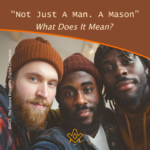 “Not Just A Man. A Mason”: What Does It Mean? Embrace the profound essence of Freemasonry, not merely a group but a journey of integrity, shaping men of dignity. By adopting virtues such as honesty, justice, and brotherly love, Freemasonry transcends time, urging us towards a dignified life. It’s more than being a man; it’s about living with unyielding dignity. |
 Multiculturism and the Culture of Freemasonry Freemasonry, with its deep roots in universal principles such as individual freedoms, education, and the pursuit of science, stands as a beacon of unity in a world divided by conflicting ideologies. By embracing the tenets of Freemasonry, including respect, peace, and mutual understanding, we can navigate societal challenges and foster a more harmonious world. |
 Embrace the new paradigm of eco-conscious living in the 21st century. Freemasonry, a cornerstone of society, must evolve, placing Nature at its heart. Reject anthropocentrism, embrace deep ecology, and champion sustainable living and global cooperation. Let Freemasonry lead by example, advocating for a world where humans and nature coexist harmoniously. |
 How Freemasonry Has Woven Itself into the Fabric of Society Like the weathered stones of an ancient temple, Freemasonry's origins are shrouded in mystery. This fraternal order has woven invisible threads throughout society's fabric since emerging in the 1600s. Despite declining membership, Freemasonry's influential legacy endures, seen in philanthropy, architecture, and the ideals of legendary members. Though facing challenges, revival remains possible if it adapts traditions to the modern era. |
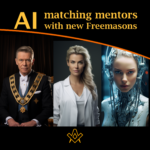 AI help in matching mentors with new Freemasons Harnessing AI for Freemasonry Mentorship: A Comparative Analysis. Freemasonry, an age-old fraternity, seeks to enhance its mentorship program by leveraging AI. While the Grand Master suggests detailed member profiles for matching, a Professional Coach emphasizes personality compatibility. Meanwhile, an AI Bot proposes machine learning for pattern recognition. Dive in to explore the potential and pitfalls of each approach. |
 Masonic Charities P.2 – The Shriners Discover the Shriners' legacy within Freemasonry; delve into their profound commitment to philanthropy and see how Masonic Charities demonstrate brotherly love, relief, and truth. Become inspired by the bonds that unite Shriners around the globe and their impactful work in local communities. |
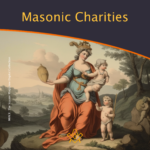 Freemasonry's commitment to charity has always been a priority and remains a core principle, reflecting its mission to promote brotherly love, relief, and truth in the world. Part 1 of the series gives an introduction to the establishment of the main Masonic Charitable endeavours in the 18th and 19th centuries and several key influencers. |
 Solomon Learning and Development Platform The Intersection of Freemasonry and Technology: Embracing the Digital Age with the New |
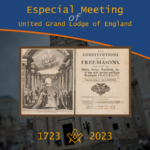 Especial Meeting of United Grand Lodge of England The year 2023 marks the tercentenary of the publication in London of the Constitutions of the Freemasons, based on Enlightenment principles that provide the philosophical foundations of modern Freemasonry. Why are the 1723 Constitutions important? Many Masonic histories have been concerned with ‘when’ and ‘what’. We also explore ‘why?’ |
 Like every other incident of initiation it is in the light of the larger meanings of Freemasonry that we must interpret the Rite of Destitution. But what does it mean? |
 Society of Grand Lodges in Alliance (SOGLIA) is a confederation of Grand Freemason Obediences in which all members obey the principles of Regularity. Assembled annually, in different places of the world, in order to share fellowship and to promote Masonic tradition, SOGLIA members are respecting the autonomy of each Grand Lodge. |
 Confederation of the Grand Lodges of Europe and the Mediterranean - Universal Freemasonry and its intellectual property are less and less taken into account in the current times of constant movement and unclear future prospects. |
 The Book of Law in Brazilian Freemasonry We are informed that, Freemasonry it is not a religion, but the candidate has a belief in a creative principle, which later, we call the Great Architect of the Universe. - by Fernando Rodrigues de Souza |
 Mike's Masonic Walks And Talks WBro. Mike Neville is a Masonic author and lecturer. He offers walks and talks primarily around London, based on his vast knowledge of the area and his specialist subjects, which cover all aspects of Masonic history. |
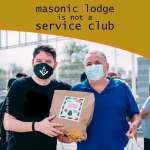 A Masonic lodge is not a service club An address delivered to the 10th Annual Conference of Western Canadian Grand Lodges (1950) in response to the question, "Should Our Western Grand Lodges Sponsor a Specific Program?" By |
 The Order of Bees was established as a youth initiative for the boys and girls of Prince Hall Freemasons, and symbolises the relationship existing between the activities of the youth and the family of bees. |
 The Confederación Masónica Interamericana (CMI) was founded in 1947, is a non-profit organization that groups together 92 Great Masonic Powers, admitted as members and distributed in 26 countries in South, Central, North, Caribbean and Europe. |
 This smartphone app is designed to work with all Freemasons from both Regular and Independent Grand Lodges around the world. |
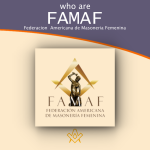 The American Federation of Feminine Freemasonry (FAMAF) is an organization that brings together Grand Lodges, Grand Orients and Confederations of Feminine Masonic Grand Lodges from the American continent. |
 The third largest Masonic Alliance of independent grand lodges, which currently has over 500,000 members in the world and an incredible resource of "good people with a good reputation" from around the world. |
 A Guiding Paw - my faithful 'brethren' A heart-warming story of one Mason's best friends – and how Gary's faithful guide dogs have helped fulfil both his Masonic life but also his valuable work in public service. |
 A visit to the Mother Lodge of Scotland Let me take you to the heart of Scotland to meet our Brethren of the Mother Lodge of Scotland, a journey into one of Freemasonry's deepest roots. Our guide Carlos Oliveira Santos who is from |
 An introduction to VEREINIGTE GROSSLOGEN von Deutschland / UNITED GRAND LODGES of Germany |
 International Masonic Union CATENA An international association of Grand Lodges and independent Lodges, with all true Masonic traditions, which adhere to the basic principles of the equal standing of men and women in Freemasonry |
 Social Impact of Prince Hall Freemasonry in D.C., 1825-1900. Alonza Tehuti Evans discusses Prince Hall Freemasonry, founded by African Americans. |
 Who are the Widows Sons, and what do they do, and how can you join ? |
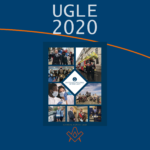 For the first time in its 300 year history UGLE has published an Annual Review |
 Founded in 1919 and named after the Grand Master of the Knights Templar, this International Order has helped young boys become great men. |
 9th International Conference of Freemasonry Hidden Meanings: Esotericism and Masonic Connections |
 An introduction to CLIPSAS and we look at who are they and what do they do |
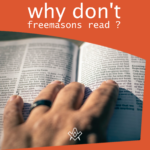 The title of this article will seem somewhat of an oxymoron, because at this precise moment you, most likely a Freemason, is reading this |
 Music can make you either remember everything or forget everything! They even call it the 'rhythm' of life because life does have a beat, a rhythm, a song! Music is equally important for Freemasons. |
 Young Masons' Inter-Club Virtual Social An initiative was created to initially keep Brethren engaged in their Masonry whilst the restrictions of the COVID-19 pandemic are in place. |
 I've heard people say that we don't have heroes |
 What can we learn from Steve Jobs' address given at Stanford in 2005 |
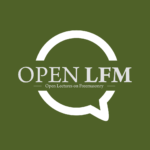 Open Lectures on Freemasonry as a series of monthly online lectures that aims to increase the visibility and accessibility of research into Freemasonry. The lectures are open to anyone who is interested. |
 What Kind of Library Do You Have? Many Brothers have no clue as to what kind of "Craft" library they actually have in their home or office. Most of these Brothers don’t care that they don't know – so, what kind of library do you have? |
 Russian Freemasonry a combination of a short sketch of its history and a review of the present-day Masonic landscape in this country |
 A brief outline showing the differences and similarities within Freemasonry |
masonic knowledge
to be a better citizen of the world
share the square with two brothers

click image to open email app on mobile device








